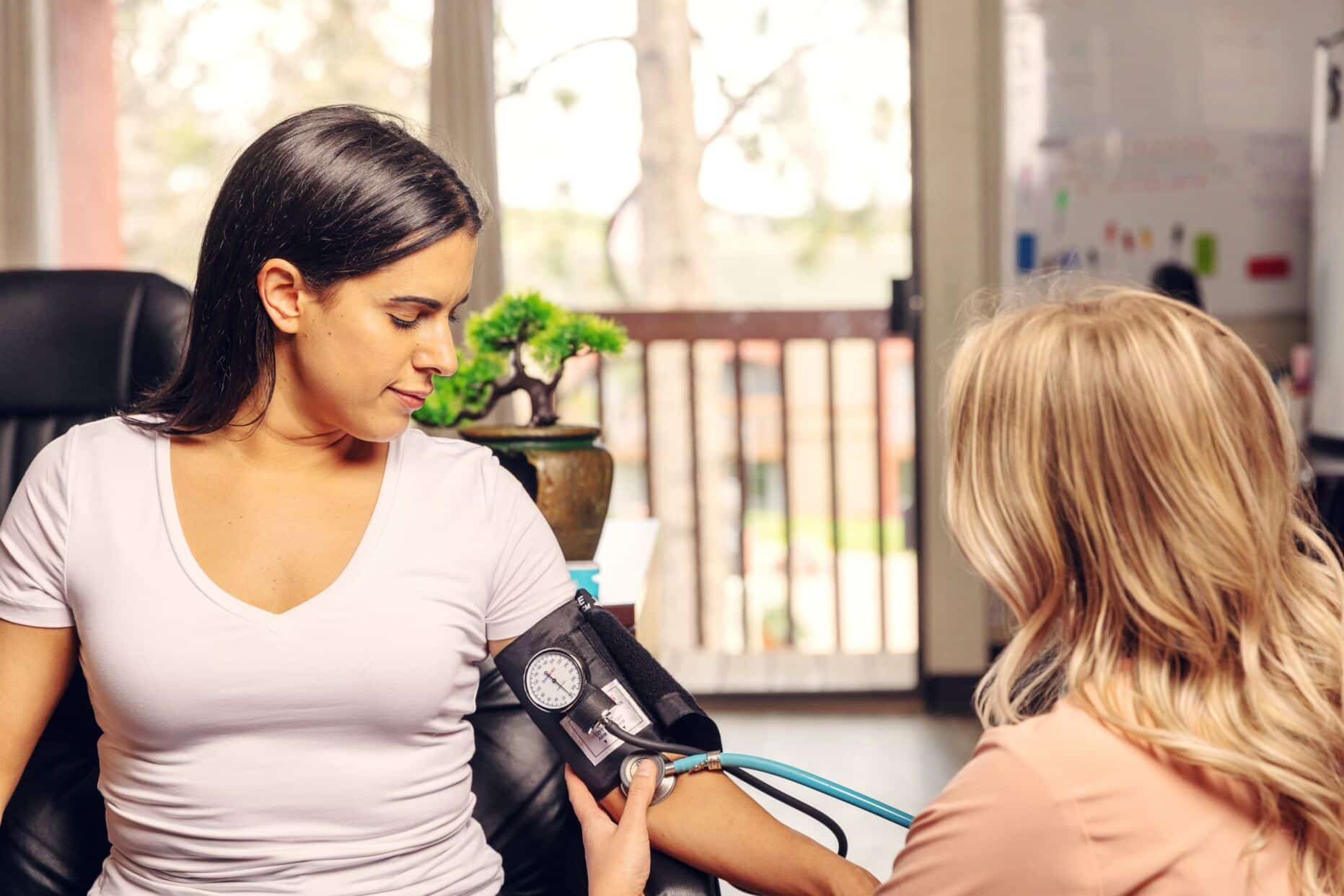When it comes to detoxing, there are things that you need to make sure of because this can be a very dangerous process if not properly completed.
The best detox can’t be found in a bottle or a pill. At least in terms of product labels that promise a liver cleanse or something comparable.
There are supplements, yes, that might help after people indulge in some excesses. Drinking water is always a fine idea too.
Medical detoxification — part of medically assisted treatment (MAT) — it should be noted, is one bona fide way to help wean a person off of drugs, by making the painful symptoms of withdrawal more manageable. It’s only one step of the recovery process, however.
Do I Need to Detox?
Many people do feel the need to adopt some healthier habits after autumn and early winter holidays.
Too much Halloween candy, stuffing, and eggnog in October, November, and December give way to plenty of salads — hold the croutons and dressing! — come January.
Or there’s Dryuary — Urban Dictionary wryly defines it as typically starting January 1, with practitioners often uttering phrases like, “I will never drink again.” There’s a Dryuary movement, too, where people vow to say no to alcohol for the full 31 days of January, and often aim for moderation in the months that follow.
Healthier habits definitely beget better health.
Quick fixes such as laxatives, diuretics, detox drinks, and teas tend to be just that — quick fixes. Some items, such as laxatives, can do more harm than good and cause potential dehydration or dependency.
How to Detox Your Body, Naturally
The liver is one of the body’s natural detoxification tools. It has hundreds of functions, including filtering the blood of toxins, like those found in drugs and alcohol. Too much of a bad thing — think many years of heavy drinking — can turn a healthy liver into scar tissue. The liver is especially vulnerable to alcohol because most of it — more than 90% — is metabolized there.
One way to keep the body’s innate detox system working better is to limit alcohol intake. Ideally one drink a day for women, or two for men, is a safe amount for those who can manage moderation.
Too much boozing can lead to fatty buildup, inflammation, and scarring, making it harder for the liver to filter out the bad stuff.
Drinking more water is also a good choice. It helps with digestion, beats bloat, improves nutrient absorption, and washes out waste.
Should You Eat “Clean”?
In a word, yes. Or, try to as often as you can.
Sugar and processed foods aren’t great. Not only can they lead to weight gain but also to obesity-linked diseases such as diabetes, heart disease, and cancer.
Better food choices such as fruits, vegetables, whole grains, dairy, and lean meats (if you’re not a vegetarian or vegan) will, as the saying goes, do a body good. Berries, nuts, cocoa (not the stuff that comes powdered in a packet), coffee, and green tea have antioxidants that protect the body against free radical damage that can lead to dementia, heart disease, and some cancers. Exercise, too, helps the detox process and helps keep the body strong.
Do Detoxifiers Really Target Toxins?
Pills and potions promising a detox or a liver cleanse are all over the internet. All you need are hope and a credit card.
Some ingredients are easy to recognize, such as vitamins. Alcohol can interfere with the absorption of many vitamins and lead to nutritional deficiencies and deficiency-linked diseases for those who consistently abuse the stuff.
Other concoctions include buzzword ingredients such as mushroom extracts and dandelion root (a natural diuretic).
Milk thistle pops up frequently among supplements alleged to promote liver health. A few studies have found it may help mend some damage, inflammation in particular — but no overwhelming data exists to tip the scales toward it being truly beneficial.
For people with allergies to plants in the Asteraceae/Compositae family (which includes arnica, asters, daisies, chrysanthemums, echinacea, marigolds, stevia, and tarragon), it might be best to skip milk thistle entirely. Milk thistle may not be ideal for diabetics, also, as it can lower blood sugar.
Turmeric is another trendy item, and it does seem to have some merits. The flowering plant is a member of the ginger family (ginger is another spice that may boost health) and may help combat inflammation too.
Cleanse with Care
It’s best to proceed with caution when considering a cleanse.
Most medical professionals would suggest time and money are better spent elsewhere, especially for those magic bullet-type promises. Depending on the ingredients, so-called detoxing supplements could do more harm than good. (Remember, our bodies already have the tools to remove some toxins on their own.)
There is no evidence that a cleanse can prevent or reverse liver damage. Excessive alcohol consumption and a family history of liver disease are the main threats.
Better ways to preserve liver health include:
- Reducing and limiting alcohol intake
- Receiving vaccinations against hepatitis
- Using medications carefully (too many, or certain combinations, can do damage)
- Being cautious about needles (both with injecting drugs or getting tattoos)
- Wearing gloves, long sleeves, pants, and/or a mask when using chemicals, insecticides, paint, or fungicides
- Keeping your weight in check with healthy lifestyle choices (good diet and exercise)
Supplements can be tricky, too, as some may interfere with medications.
Another item, activated charcoal, is sometimes touted as a way to detox. It shows up in many over-the-counter (OTC) remedies as well as products found in gas stations and other places. It is not absorbed by the body, so in theory, toxins could latch to the activated charcoal and become swept out the body via the digestive system.
Activated charcoal can help remove certain prescription drugs or over-the-counter medicines such as acetaminophen — but not so much with alcohol and heavy metals. It’s not going to replace your body’s natural filtration systems.
Although some health care settings use the substance, the activated charcoal administered in emergency rooms is a much higher dose than drugstore options, so using activated charcoal on its own to reverse a potential overdose is not advised. Because it binds with many drugs, activated charcoal can also interfere with the functioning of prescription medications.
How to Detox Your Body
There’s no pill or potion or diet that will reverse long-term damage using a short-term commitment.
If you exhibit signs of alcohol or drug addiction, professional help is recommended. Contact your health care provider, visit the Substance Use Disorder and Mental Health Services Administration (SAMHSA) site for treatment options and other helpful information, research the kinds of therapies and facilities available, or participate in a self-help group.
The best way to detox doesn’t come in a bottle. It comes from leaving behind harmful habits and adopting healthier ones, one step at a time.
And a side of green tea wouldn’t hurt. It’ll help keep you hydrated and provide some antioxidants, at least.
Talk with one of our treatment specialists . Call 24/: 949-276-2886
References
- healthline.com – 7 Science-Based Benefits of Milk Thistle
- healthline.com – Alcoholic Liver Cirrhosis
- urbandictionary.com – Dryuary
- healthline.com – Full Body Detox: 9 Ways to Rejuvenate Your Body
- healthline.com – Laxatives Side Effects: Understanding the Risks
- britannica.com – List of Plants in the Family Asteraceae
- hopkinsmedicine.org – Liver: Anatomy and Functions
- healthline.com – Liver Cleanse: Separating Fact from Fiction
- drugabuse.gov – Medical Detoxification
- medlineplus.gov – Substance Use Recovery and Diet
- healthline.com – What Is Activated Charcoal Good for? Benefits and Uses
Medical disclaimer:
Sunshine Behavioral Health strives to help people who are facing substance abuse, addiction, mental health disorders, or a combination of these conditions. It does this by providing compassionate care and evidence-based content that addresses health, treatment, and recovery.
Licensed medical professionals review material we publish on our site. The material is not a substitute for qualified medical diagnoses, treatment, or advice. It should not be used to replace the suggestions of your personal physician or other health care professionals.






